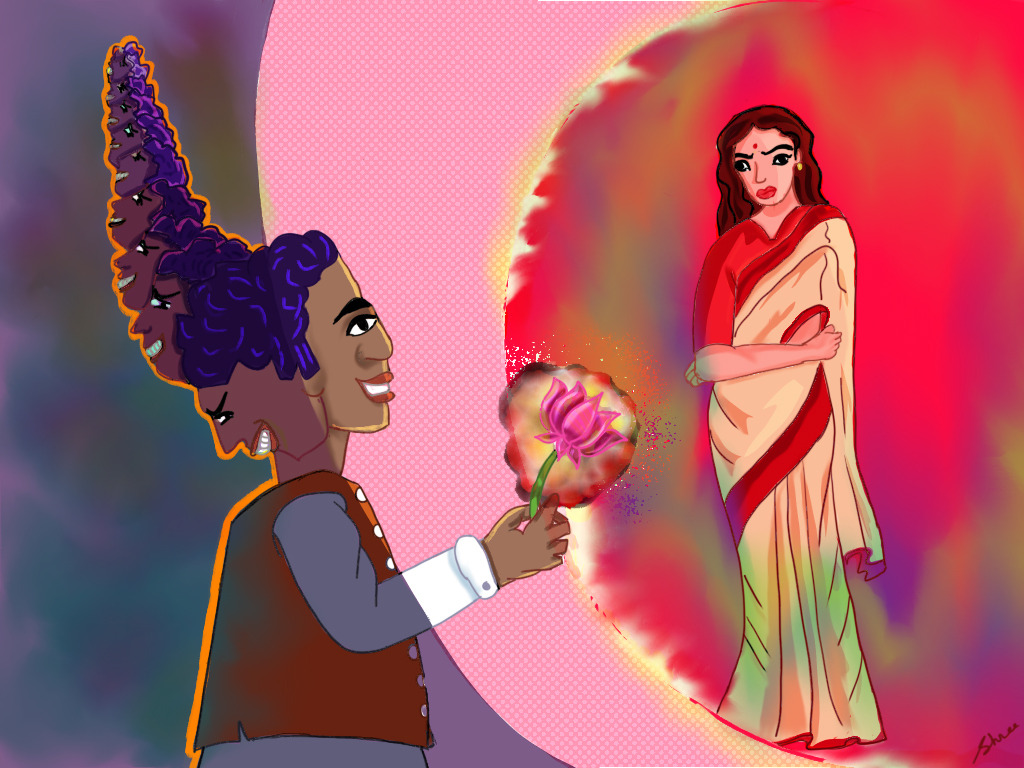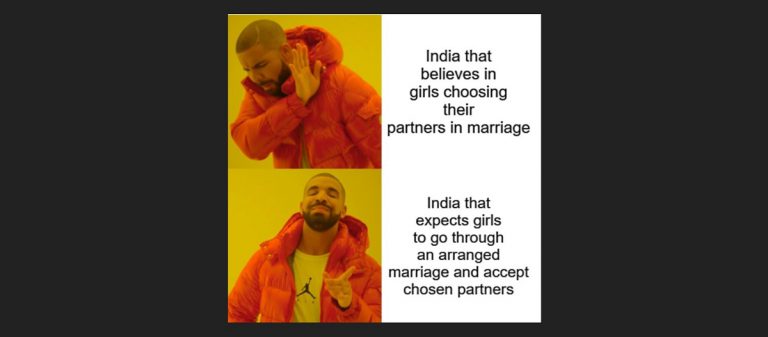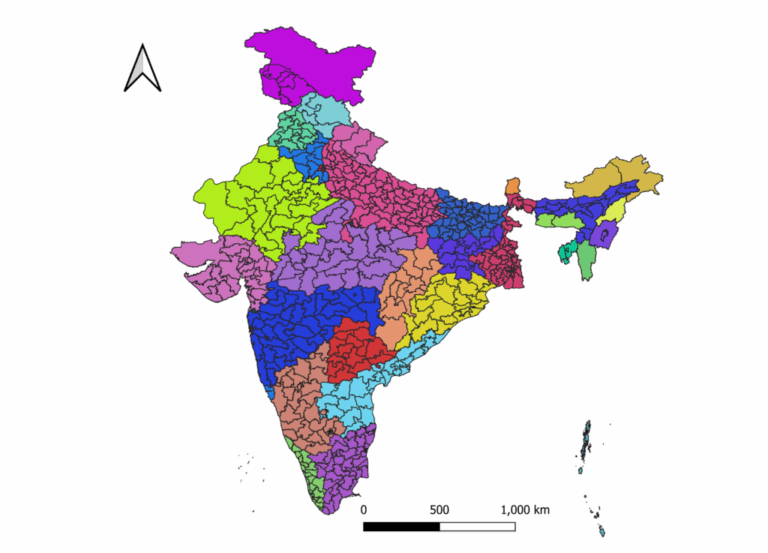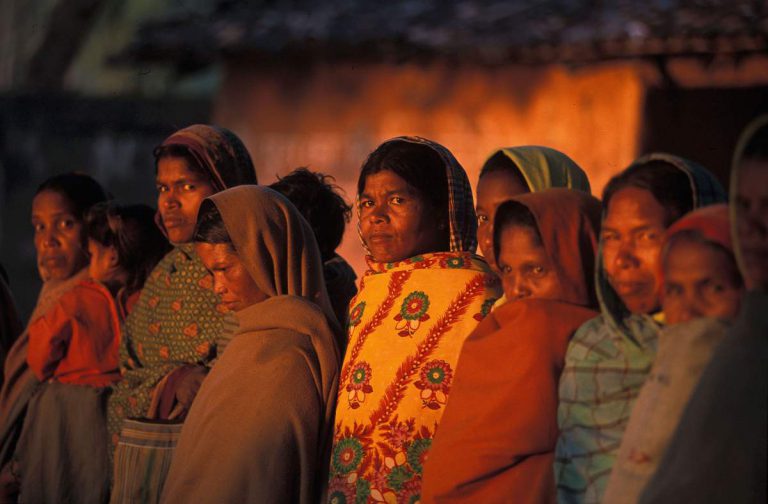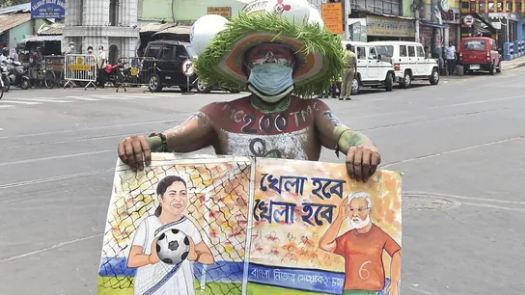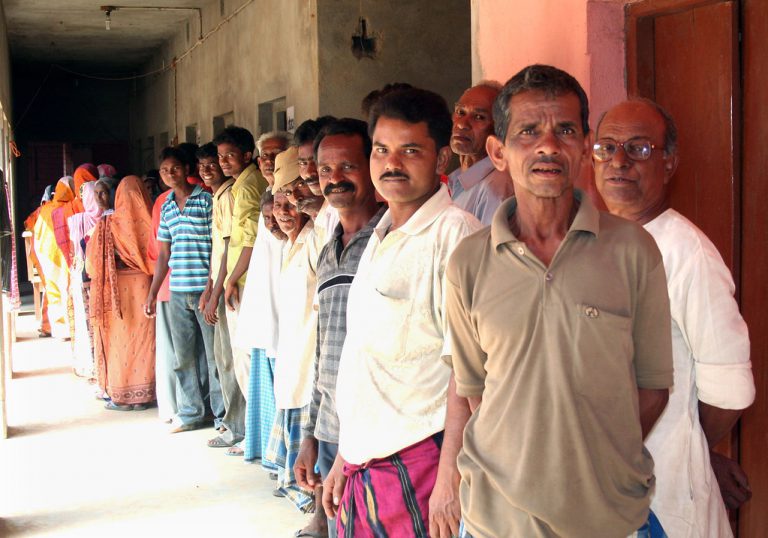Masculinity in favour of women’s reservation is just ‘political’
A Social Researcher with keen interest in politics of ideological subversions. Weaving stories from grassroots, filling in the blanks by travelling and interactions with various communities. A consultant by profession,
Step into the vibrant tapestry of India’s political landscape since 2014, and you’ll find it adorned with historical moments that have captivated the nation. Today, as I embarked on a journey home in the cozy confines of an autorickshaw, fate bestowed upon me yet another intriguing chapter in this unfolding narrative.
Picture this: a candid exchange of words with my autowallah, who confidently declared, “Women should not be in politics; they cannot think like men do and get into a physical fight when necessary. They should remain inside the confines of their homes and support their husbands.” Such opinions are a reminder that India’s transformation is an ongoing process.
Seizing the moment, I posed a question, “Modi Ji has just tabled the women’s reservation bill in Parliament and got it passed. Do you not support his vision of ‘sabka sath, sabka vikas, sabka vishwas’?” His response was a reflection of the complexities that often define Indian politics and society, “I have been a Modi supporter, but bringing women into politics is something I will not support him for.” It was yet another historic moment, marking a deviation from the Modi wave that had swept the nation since 2014, and that too for a historic move to bring reservation for women in politics. This only reminds me of the story of The Tiger King by Kalki.
Here I was, traversing the streets of West Bengal, returning from a state government medical facility where medicines are accessible at a substantial discount, and here the autorickshaw driver purchased medicines. West Bengal is the sole state presided by a female chief minister in the country, Mamta Banerjee. She has been a champion of women’s involvement in politics, making the conversation all the more thought-provoking. The 2019 General Elections provided a significant opportunity for the BJP to showcase its commitment to inclusive policies for women in politics by fielding a substantial number of female candidates. Given the 33% reservation in the Bill, it was the AITMC, with 40.5% women representation, and the BJD, with 36.8%, that emerged as front-runners in demonstrating sincere efforts to embrace and empower women in the political arena. For the rest, BJP at 12% and INC at 13.7%, the journey to 33% reservation doesn’t look like an easy ride.
This chance encounter sparked a myriad of reflections on the recent bill introduced by the BJP-led government through a special session of Parliament. India, that is Bharat, will soon celebrate the “Mother of Democracy” festival with the 2024 general elections looming on the horizon. The proposed bill would undoubtedly go down in history if implemented by then. But (that’s what the bill is all about) – the bill hinges on the completion of the census and delimitation processes, which may transform the celebration into an exercise of “Mockery of Democracy”.
With much history yet to unfold, this article serves as a man’s (that is me) exploration to comprehend the politics of women’s reservation within the BJP and Narendra Modi (The “Man”). As the curtain rises on this captivating drama, we watch with bated breath, eager to witness the next chapter in India’s evolving political saga.
The “Man” on a series of “historic” missions
Enter the world of politics, where the image of a leader is often crafted with powerful rhetoric and bravado. In this tale, we encounter a figure known for his “56-inch chest” and an unapologetic display of masculine might in his speeches. But can we wholeheartedly believe that everything about this bill is above board, much like the “The Muslim Women (Protection of Rights on Marriage) Bill 2019“?
Indeed, it’s a historic moment as we witness a Women’s Reservation Bill (Nari Shakti Vandan Adhiniyam), meticulously edited and rebranded to align with the perspective of those in power especially the “Man” and his party BJP. Members of the ruling BJP, including women, heap praise and admiration upon the Prime Minister for his commitment to empowering women in politics. He proudly takes credit for convening a special session of Parliament just before five states gear up for elections, leading up to the 2024 Lok Sabha election.
While the bill’s political intricacies have sparked many a debate, let’s momentarily shift our focus to the patriarchal backdrop of the current BJP government and its approach to women’s reservation in politics. It’s imperative to delve into a pivotal conversation I had with the autorickshaw driver, providing insights into a specific socio-economic class deeply entrenched in Modi’s India or Bharat. Alarming statistics reveal that this very demographic witnesses the highest incidence of crimes against women. The views of women in a yet-socially reformed country will take a significant time, a bill or a reservation is far from a solution that needs mindset transformation.
Let’s not forget the geographical context—West Bengal. In 2021, Narendra Modi made a grand entrance in the state sporting a Tagore-style beard during the Vidhan Sabha election campaign. His “historic” speech included a mocking reference to the incumbent female Chief Minister, accompanied by a wide smile and open hands, “Didi, O, Didi.” For his followers in West Bengal, this is the ideal image of a “man”—a misogynist. It’s evident that his supporters remain skeptical about women’s leadership in politics, and his actions only reinforce this skepticism.
This isn’t an isolated incident; we must rewind to 2019, a historic year, to examine his comments on Sonia Gandhi, the then-president of the INC, to witness the growth of that famous “56-inch chest.” Strangely, there’s no record of his stance on women’s reservation in politics in the past—perhaps it’s irrelevant to him. While he boasts of having 11 women MPs in his council of ministers, it’s saying that only Nirmala Sitharaman and Smriti Zubin Irani serve as vocal representatives when making public and parliamentary appearances. The other nine remain virtually invisible. The appointment of Smt. Draupadi Murmu as the country’s president, a historic moment as she became the youngest and the first ‘tribal woman’ president, showcased his respect for the office. However, his actions spoke louder than words, as he often omitted to invite her to perform her official duties, preferring to keep the spotlight firmly on himself.
“The Man” doesn’t seem inclined to share his thunder, but he does make political maneuvers to appease minority communities. So, is this move yet another calculated political gambit? Given his authority as the Prime Minister and the unquestioning obedience of his cabinet, does he truly need a reservation bill to field women candidates from his party in elections? If the intentions are pure, why don’t his actions align with his words? Or is this simply another political sleight of hand, one of many in the past decade? These are questions that demand answers as India’s political saga continues to unfold.
The “Man’s” probable successor
Do you recognize the figure we’re discussing here? It’s none other than Shri Yogi Adityanath. His inflammatory speeches, steeped in communal hatred and aimed at undermining the dignity of women, are in a league of their own. Time and time again, he’s made it abundantly clear where he believes women should stand in society. The instances of his misogynistic remarks are too numerous to count, but some are etched in our memories.
Adityanath is also renowned for his unrelenting stance against the various mafias that have long plagued the state of Uttar Pradesh. His tenure as chief minister has been marked by high-profile encounters, stirring a nationwide debate. While the legality of such actions remains a point of contention in a nation governed by laws and the constitution, the BJP government’s claims have found resonance with a substantial section of the public. Furthermore, Yogi Adityanath has been vocal about sternly punishing those who commit crimes against women. This brings us to a recent and rather puzzling development – the premature release of Amarmani Tripathy, a convicted criminal implicated in the Madhumita Shukla murder case.
Who is Amarmani Tripathy, you may ask? In essence, he is a politician and a significant figure for the “Brahmin” vote bank in western Uttar Pradesh. Tripathy’s political journey is nothing short of riveting, fueled by an insatiable hunger for power. However, the decision to release a convicted criminal just before the 2024 general elections raises some eyebrow-raising questions.
The tragic tale of Madhumita Shukla’s murder still haunts us. A young woman, who had achieved fame for her poetic brilliance, was brutally shot dead inside her own home in the capital of Uttar Pradesh back in 2003. Amarmani Tripathy and his wife Madhumani Tripathy were accused in the case. At the time, Tripathy was an MLA from the Bahujan Samajwadi Party (BSP). Despite his political connections, party supremo and then CM of Uttar Pradesh, Mayawati, removed him and refused to reinstate him. In the realm of politics, he was renowned as the “Brahmin face” for Purvanchal, and that reputation persists.
It was in 2007 that his friendship with Yogi Adityanath blossomed, during a period when Adityanath spent 9 days in jail for inciting communal violence in the state. Amarmani Tripathy’s son, Amanmani Tripathy, also grew close to Adityanath and publicly regarded him as a guardian figure. The Tripathy family has been no stranger to controversy, with a notable incident being the alleged accidental death of Amarmani Tripathy’s wife, Sara Singh.
In the context of their actions, the Tripathys don’t exactly come across as champions of women’s rights. Yogi Adityanath’s decision to expedite Amarmani Tripathy’s release before serving his full sentence hints at a political agenda. Currently, the BJP in Purvanchal needs a strong Brahmin leader, and there’s no better candidate than Tripathy. So, it appears that when it comes to political gains for the BJP in Uttar Pradesh, concerns about crimes against women take a back seat.
Yogi Adityanath’s early hate-filled speeches targeting women, his promise to exit politics if women’s reservation is enacted, and the release of his friend and political ally, Amarmani Tripathy, who was convicted in the murder of a young woman, all point toward a revealing truth. For them, it’s political maneuvering at its finest, where personal convictions play second fiddle to political aspirations.
The “Man’s” Gujarat model
In Indian politics, nicknames often carry heavy baggage, and the actions of leaders reveal volumes about their character. Here, we delve into the saga of “The Lion of Gujarat,” a moniker that gained prominence during the Gaurav Yatra in 2002, amidst the backdrop of a harrowing genocide.
Picture this: “The Man” in question, during an interview with Karan Thapar, nonchalantly sipping on a glass of water and then abruptly exiting the show, citing the Supreme Court judgement. It’s a moment that’s etched in the annals of political history. Yet, the recent ban on “The Modi Question,” a BBC documentary delving into the Gujarat genocide and his role as the then Chief Minister, using emergency powers, offers a fresh perspective on his tendency to evade confrontation.
This is the same man who proudly champions the Gujarat Model of Development, a claim that has often been met with skepticism. However, our focus shifts to a recent move by the Gujarat government, one that exposes “The Man’s” apathy and his party’s outlook towards women and maybe the actual – Gujarat Model.
Let’s rewind to the horrific incident involving Bilkis Yakoob Rasul, also known as Bilkis Bano, during the 2002 genocide. To label it simply as a “rape case” would be a grave injustice; it was a tale of unimaginable brutality. Bilkis, five months pregnant at the time, was subjected to a horrendous assault by her perpetrators, who took turns committing the heinous act. Tragically, she lost 14 relatives, including her mother, two sisters, and her own three-year-old daughter, all in the heart-wrenching events that unfolded in Randhikpur near Ahmedabad, the capital of Gujarat. After a protracted and lonely battle for justice, a special trial court, on that historic day of January 21, 2008, convicted 11 individuals on charges of murder, gang rape, and the rape of a pregnant woman. They were sentenced to life imprisonment, a verdict that brought some semblance of closure to a harrowing chapter. The Central Bureau of Investigation (CBI), had sought death penalty for three of the convicts, both in the trial court and the Bombay High Court in 2015. However, the High Court upheld the life imprisonment sentence, dismissing the CBI’s request.
Fast forward to August 15, 2022, when “The Man” was indulging India in celebrating Aazadi ka Amrit Mahotsav, marking the beginning of Amrit Kal. It was during this grand celebration that the Gujarat government, led by the BJP, made a shocking move. They released all 11 convicts on the grounds of “good behaviour.” This decision raised eyebrows, especially since the judges who had initially found them guilty had given a negative response to the state’s query about their release. Notably, the release coincided with the upcoming assembly elections in the state, adding a layer of political intrigue to the situation.
However, when concerned citizens took the matter to the Supreme Court of India, Justices BV Nagarathna and Ujjal Bhuyan raised pertinent questions and expressed their reservations about the state’s actions. It is disconcerting to witness the state rallying behind convicted criminals in a case where a woman is the victim. “The Man” had information on the release of the convicts since an approval letter from the Union Ministry of Home Affairs was sent. Yet, his stance on the matter remains elusive, as his government stands in opposition to Bilkis in the apex court.
In essence, these moves by the state and its staunch defense of it, shed light on their position regarding justice for women and their empowerment. It is now Bilkis Bano vs. the Union of India—an emblematic struggle of a woman’s quest for justice against the very state that should protect her.
The “Man’s” ardent disciple
In the world of politics, promises and actions don’t always align, and where allegiances can sometimes eclipse principles. The tale begins with Brij Bhushan Sharan Singh, a man who boldly declared that he would resign if Modi so much as hinted at it. Fast forward, and you’ll find that he not only retains his position but was also present in Parliament when a critical bill was tabled. The twist? He voted in favour of the bill, showcasing a devotion that borders on discipleship.
Indeed, Singh appears to be an unwavering devotee, treating Modi’s word as nothing short of divine command. But here’s the head-scratcher: why didn’t Modi ask for Singh’s resignation when he faced allegations of POCSO violations and sexual harassment involving women wrestlers? The entire nation bore witness to the relentless struggle of these brave women wrestlers against this influential figure. They had to take their battle to the Supreme Court just to get an FIR registered. Their months-long protest at Jantar Mantar echoed their unwavering determination, yet Singh remained unscathed by the long arm of the law, even in the wake of POCSO Act charges.
For those curious about Singh’s political career and history, a wealth of information is readily available in the public domain. It’s an eye-opener, to say the least. Meanwhile, consider the case of Rahul Gandhi, who faced conviction and a two-year prison sentence in a defamation case in Gujarat for a 2019 speech where he linked PM Modi’s last name with two fugitive businessmen. He pointed out the curious coincidence that these “thieves” shared the same last name. This comparison serves to highlight the BJP government’s promptness in stifling opposition voices while leaving its own party MPs and politicians seemingly untethered when it comes to charges of defamation and outraging the modesty of women.
Recently, the Delhi Police submitted a report to the Rouse Avenue court, claiming to have amassed sufficient evidence against Singh to warrant a trial. Despite this development, we’re still waiting to see any proactive steps taken by the Prime Minister or his party to address the accusations against Singh. It’s another striking example of their “true” commitment to women’s empowerment and justice. What’s even more disconcerting is the silence of the 11 women ministers from BJP on this matter, leaving us with more questions than answers.
Conclusion
Teesta Setalvad’s recent interview casts a spotlight on the stark reality of women within the confines of prisons. Her piercing observations lay bare a troubling truth: the conditions women endure behind bars are dire, in direct contradiction with established jail manuals and various laws. It’s worth noting that the prison in question resides in “The Man’s” home state, Gujarat. The question that looms large is: Is it not the solemn duty of the government to ensure the protection of women’s rights within the prison system? Or does the government, by its silence, endorse the exploitation of women who are either convicted or under trial, believing they’re already marginalized by society?
Delving deeper into the tapestry of current political narratives, we find a curious juxtaposition. While the already subversed idea of “Ram Rajya” and “Hindutva” ideology, with its tales of Ram and his legends, dominates the discourse propagated by the RSS and BJP allies, it’s intriguing to note the absence of a glorified Sita. Is it a portent of things to come in a “Hindu Rashtra,” where the chant of “Jai Shree Ram” drowns out Sita’s empowered voice, relegating her to the role of a helpless woman awaiting a man’s rescue? Even Rahul Gandhi once astutely pointed out this paradox in one of his speeches. It raises a crucial question: What are the true intentions behind the BJP’s advocacy for the inclusion of women in politics – genuine empowerment or a political maneuver to court women voters in support of “The Man”?
Turning our gaze to a poignant case, that of Gauri Lankesh, a respected and outspoken woman journalist brutally murdered in her Bangalore home on September 5, 2017. At the time, the BJP held power in Karnataka, and “the man” was still at the helm as PM. It’s been six long years, and yet, no convictions? One would assume that this should have been a paramount political agenda for the party, given their professed commitment to empowering women and advocating for justice. The lingering question is why the BJP did not appoint the CBI to probe the case independently. The CBI was involved in the investigation in connection with the cases of Narendra Dabholkar and Govind Pansare, Gauri’s case remained an exception. Was she a victim of a larger conspiracy, an undisclosed government agenda that prevented them from setting a precedent of justice and women’s empowerment politics?
In conclusion, let’s also cast a spotlight on the LGBTQIA+ community. Since the historic abrogation of Section 377 in 2018, their legal existence has been instated, however, the battle for their marriage rights remains in legal limbo. An interesting observation made by the Chief Justice of India during the hearing of the same sex marriage petitions was regarding the concept of “woman,” highlighting the absence of an absolute definition of biological man and woman. This raises a pivotal question: Will “gender identity” as a woman also be considered in the context of reservation, or will we persist in the conservative path of biological sex when contemplating women’s representation in parliament? The answer to this question holds profound implications for the future of inclusive politics in India.
Views expressed are author’s personal. The journal does not subscribe to any political views.


